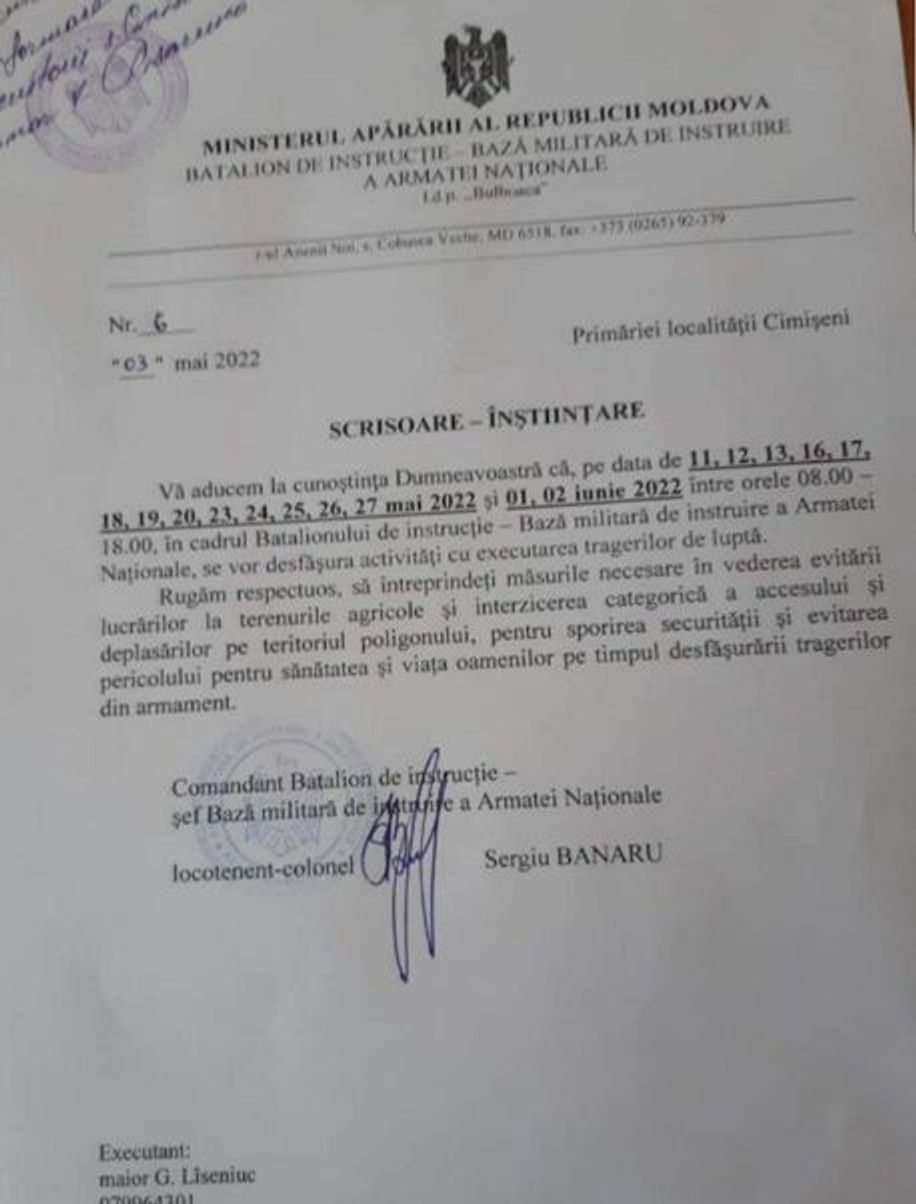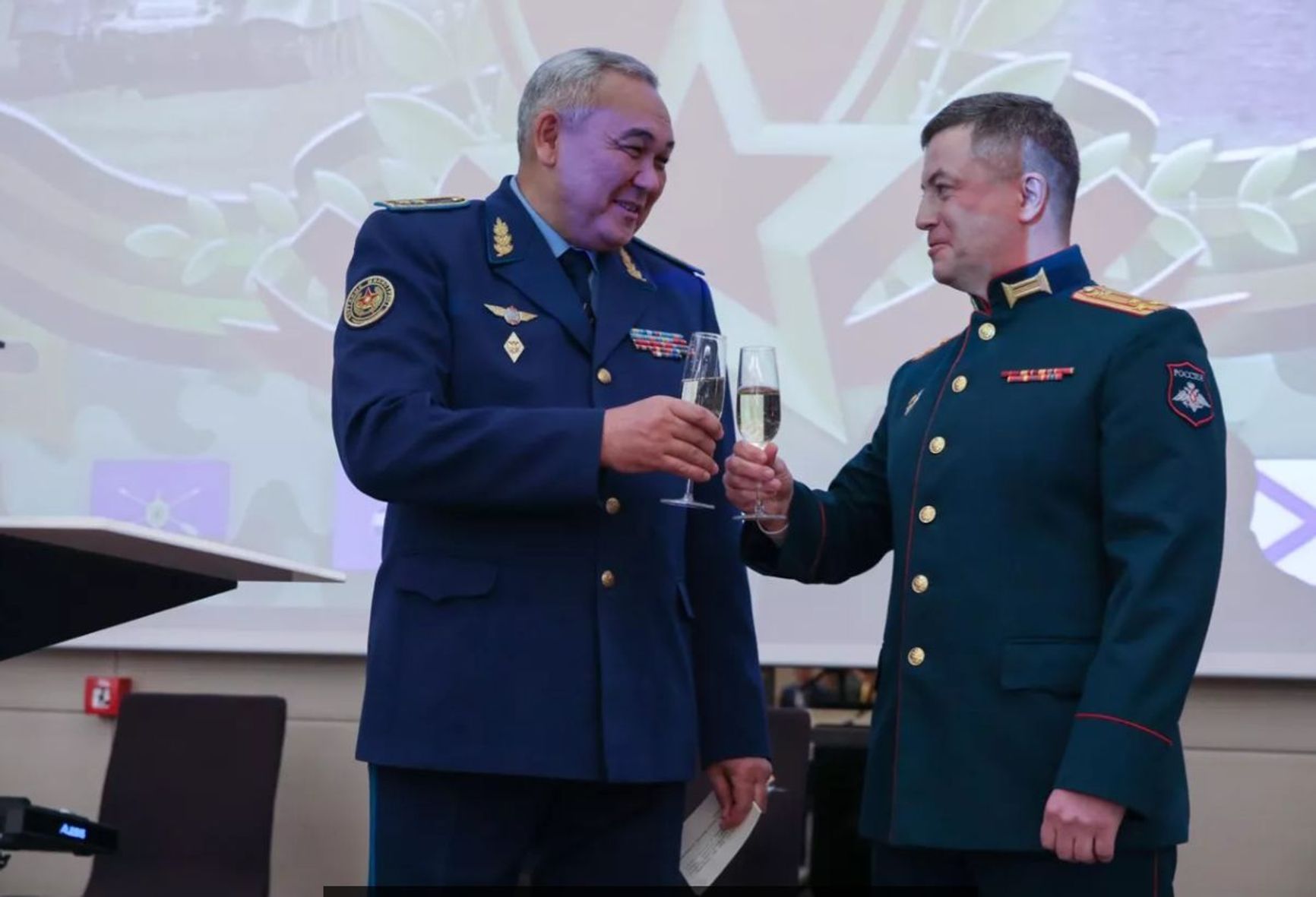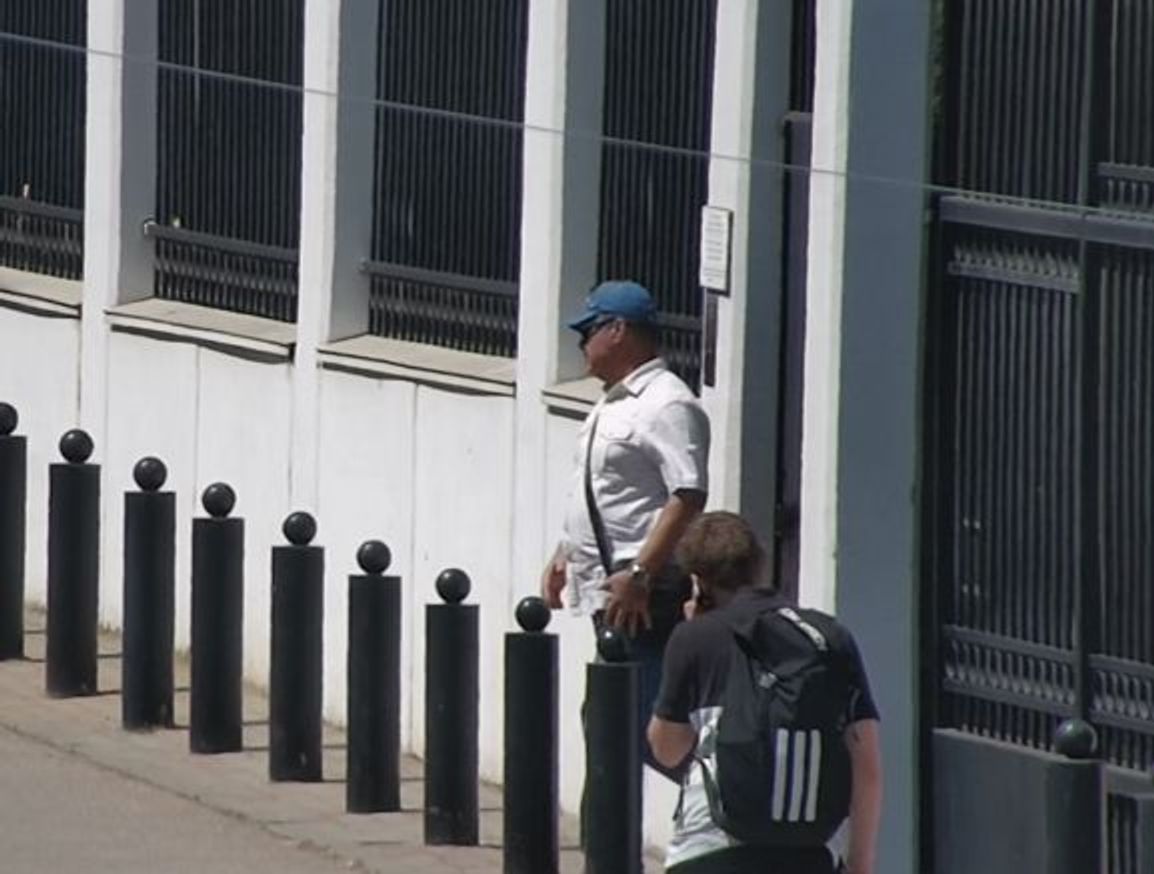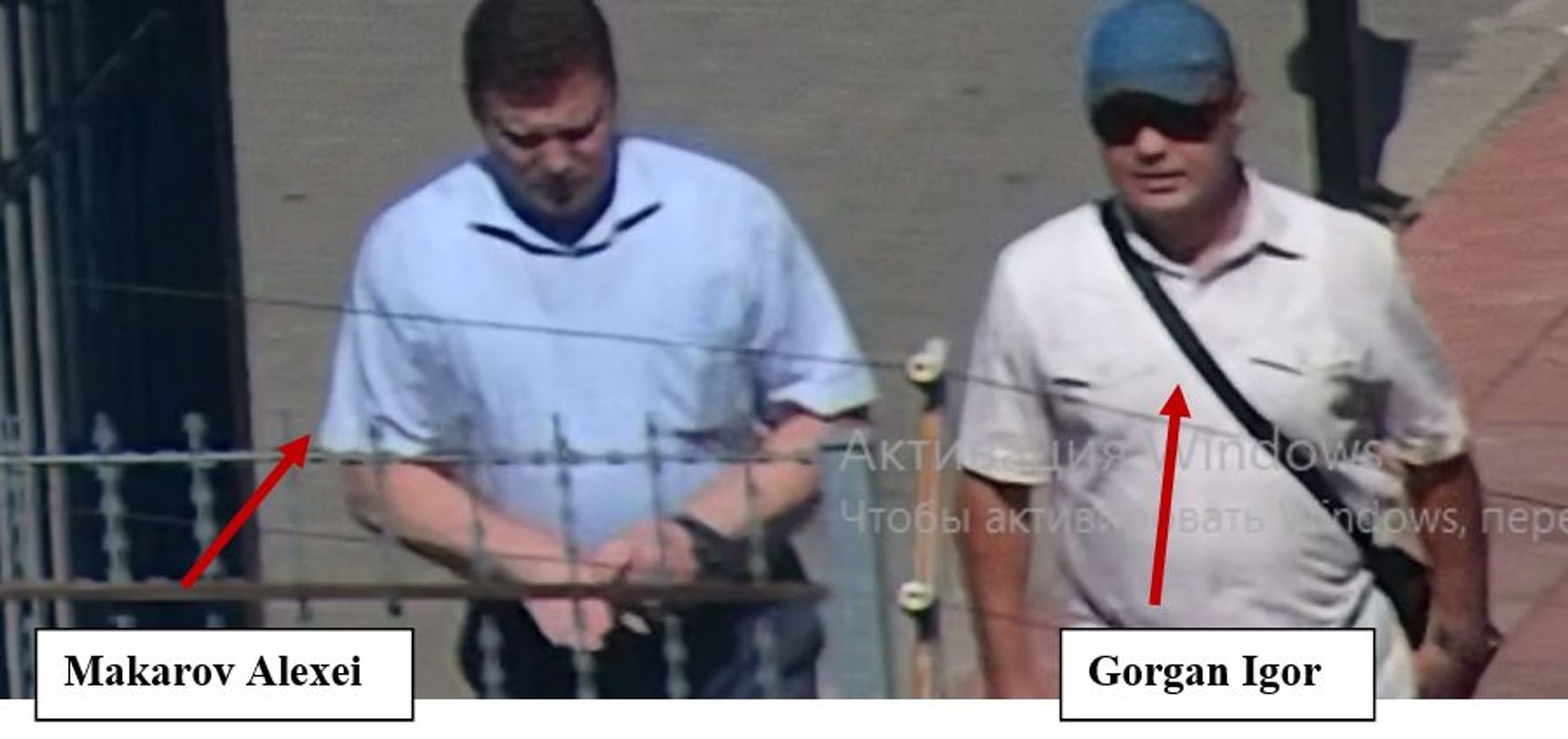

The Insider has accessed Telegram correspondence between former Chief of the Moldovan General Staff Igor Gorgan and his GRU handler, Russian Colonel Alexei Makarov. Gorgan regularly reported to Makarov on Moldova's domestic political situation and provided information on visits from Ukrainian Ministry of Defense representatives, who came to Moldova to purchase military equipment and ammunition. Gorgan served in the General Staff until late 2021, when the country’s new Western-leaning president Maia Sandu requested his resignation. Before the July 2023 mass expulsion of Russian spies working in Moldova under diplomatic cover, Gorgan even managed to secure a job at the UN. Leveraging his remaining connections in the Moldovan Defense Ministry, Gorgan continues to be a key GRU informant.
Content
Agent Gorgan
Handlers from the GRU
Colonel Makarov
This is a joint investigation with the Moldovan publication Malenkaya Strana («Маленькая страна»).
Igor Gorgan and Alexei Makarov began particularly active communications in April 2022, following Russia's full-scale invasion of Ukraine. Their confidential meetings primarily occurred in cafes in Chisinau or during fishing trips. “I can meet anyone, I am a man of action, we need to move forward faster! We should go fishing and talk about everything! We're living in historic times! And we have to make this history!” reads one of the messages from the Moldovan general.
Judging by these reports, the GRU was particularly interested in what kind of weapons Kyiv buys from neighboring countries — including Moldova. General Gorgan immediately reported: “Ukraine’s [state defense exporter] Ukroboronexport is trying to buy back (or take with the help of ‘partners’) 6 Mig-29s from Moldova, which are in Mărculești. They insist very strongly... So far the airplanes are in place. They want to ‘pull off’ the operation through a front company from the United Arab Emirates in the near future.”
Gorgan sent another message on the same day: “Railroad trains with fuel are coming from the territory of Moldova, namely from the village of Etulia to the Ukrainian settlement of Reni. The train with fuel moves only at night, during the day it stands still in order not to become a target of the Russian Federation's Aerospace Forces (VKS).”
“Thank you,” Colonel Makarov replies.
Another message to the handler followed soon after: “The Ukrainians have been walking around our Ministry of Defense for three weeks asking for everything — artillery shells in particular.”
Agent Gorgan was also restless about arms deliveries to Ukraine via Romania. Here’s the advice he gave to Colonel Makarov: “It’s essential to close the border with Romania as soon as possible! It's a big hole! A lot of cargo comes to Ukraine from there. Especially military cargo! The Romanians still have some military factories that produce weapons and ammunition.”
Agent Gorgan
Agent Gorgan's biography is quite typical for a Soviet army officer who found himself in a CIS country after the collapse of the USSR. Born in 1969 in Dubossary, Moldova, he completed compulsory military service before enrolling in the Novosibirsk Higher Military Command School, graduating in 1991. Returning to an independent Moldova, Gorgan first served in an airborne division in Ukraine’s Odesa region, then back home as commander of the 2nd Motorized Infantry Brigade in Chisinau.
In 2001, the promising officer was sent to study at the U.S. Army Command and General Staff College at Fort Leavenworth. Since 2003, he has participated in NATO international missions in Bosnia and Herzegovina, Georgia, and Iraq.

Igor Gorgan
In 2013, he became the Chief of General Staff of Moldova, but a conflict with then Defense Minister Anatol Salaru forced him to leave the military. In 2019, after Kremlin protégé Igor Dodonwon Moldova’s presidential election, Gorgan again headed the General Staff. He remained in this position until September 2021, when new President Maia Sandu asked him to resign.
Nevertheless, many of Gorgan's proxies still retain their posts in the ministry, using their access to supply him with secret information. As Gorgan tells his Russian “pen pal”:
“Representatives of Ukraine contacted representatives of our Ministry of Defense to find a connection with the MESON military plant. This is a former radio electronics factory in Chisinau. It produced various electronics for the needs of the Soviet army. Now representatives of Ukraine are very interested in the repair and transfer of technical documentation for the tactical complex TOCHKA-U!!! Specifically, they’re interested in the radio-electronic component of this complex, which was produced in Chisinau. We are talking about the electronic control units of the TOCHKA-U!!!! This contact happened yesterday!!! The Ukrainians called one of our officers from the General Staff and asked for help.”
The Moldovan Defense Ministry retains many of Gorgan's proxies who supply him with secret information
Gorgan also has associates among officials outside the capital. For instance, one sent him a document detailing the Moldovan army's planned training and firing exercises at the Bulboaca military range. Naturally, this information was promptly relayed to GRU headquarters.
Aside from keeping the GRU abreast of military developments, Agent Gorgan passed on information about the internal political situation in the Moldovan leadership and closely monitored the public speeches of President Maia Sandu, as is evidenced by dozens of links sent to his handler. The general has a special hatred for Sandu, as she had deprived him of his chair in the general staff: “[expletive deleted]! She’ll do a lot more damage,” he signaled to Makarov.

Handlers from the GRU
It was not possible to determine exactly when Gorgan offered the GRU officer his services. The Insider's source in military intelligence suggested that active contacts most likely began in 2004, when Gorgan was serving in a NATO mission. At the very least, it is known that, prior to Colonel Makarov, Gorgan kept up a close professional relationship with the Russian military attaché in Chisinau, Vadim Ukhnalev. Before Moldova, Ukhnalev had been spying in Lithuania, but “he made a mistake there and was urgently recalled.” Currently, Colonel Ukhnalev holds the position of military attaché in Kazakhstan, where he “has established active contacts with the military leadership.”

Vadim Ukhnalev (on the right)
After Ukhnalev left Chisinau, Gorgan was overseen by another military attaché, Igor Dovbnya. The Insider and Malenkaya Strana have obtained a recording of a phone conversation between Gorgan and Dovbnya in which they agreed to meet and “discuss everything” at the Afghan War Memorial in Chisinau.
The Insider has audio recordings of Gorgan's conversations. Comparing his voice on these recordings with samples taken from open sources confirms that it is indeed the same person speaking.
A telephone conversation between Gorgan and Dovbnya
In 2017, Dovbnya was expelled from Moldova for espionage activities. He now heads the office of the Russian military attaché in Kyrgyzstan and is actively establishing contacts with former Soviet army officers and veterans' organizations in the country’s capital, Bishkek.

Igor Dovbnya (right)
Colonel Makarov
Since 2019, Colonel Makarov, who also served as a military attaché at the Russian Embassy in Chisinau, has taken «patronage» over Gorgan. Makarov graduated from the Moscow Higher Combined Arms Command School in 2001 and was subsequently transferred to military intelligence. A Moscowdatabase lists the colonel's registered address as the GRU headquarters at 76 B Khoroshevskoye Shosse (Highway).
Moldovan investigative journalists specializing in exposing Russian espionage have repeatedly spotted General Gorgan at the Russian embassy in Chisinau — including during a confidential meeting with Makarov.

Igor Gorgan on his way out of the Russian embassy
Judging by their correspondence, the relationship between handler and agent was rather friendly. For instance, the general complained to Makarov about his difficulty in sending a money transfer to Novosibirsk for his daughter. Gorgan, meanwhile, frequently sent Makarov messages asserting that Moldova was prepared for the entry of Russian troops: “We urgently need to cleanse the country of all fascist scum! Many are ready. Pass it on... The time has come. I keep the whole situation in the army under control.... Here, to my joy, there is no 'Azov' or other national formations, and we will deal with [the] politicians quickly.”
The relationship between handler and agent was rather friendly
It is not hard to guess how the general intended to “deal” with Moldova’s politicians.

Gorgan and Makarov
On the eve of the mass expulsion of Russian diplomats from Moldova in July 2023, Gorgan ceased communication and secured a job at the UNHCR-Moldova office in Chisinau.
The agency handles all refugees and internally displaced persons (IDPs) from Ukraine and assists them with resettlement. The irony is that Gorgan, who recently suggested to the GRU agent that Russia set up a blockade of Ukraine, is now involved in delivering humanitarian aid to Ukrainian children.